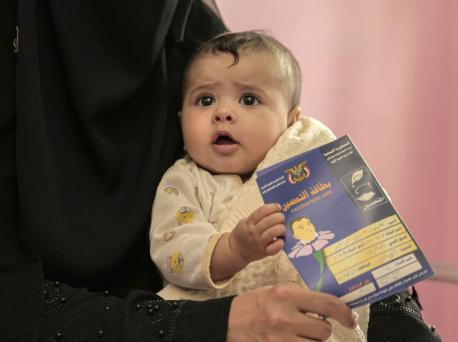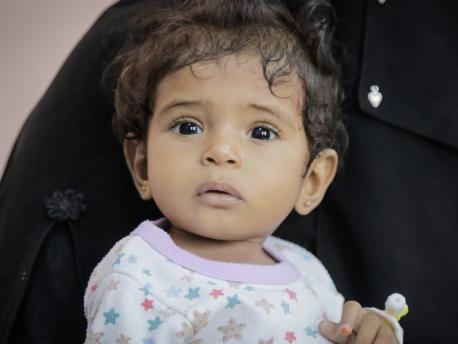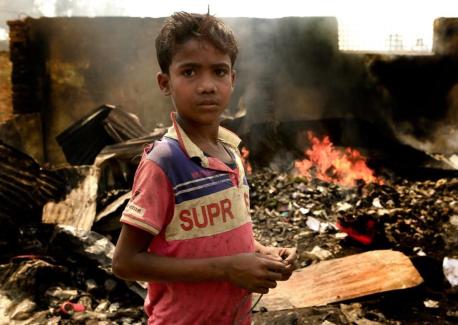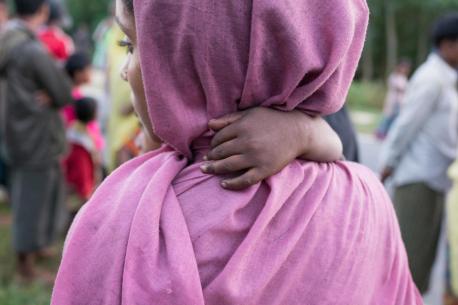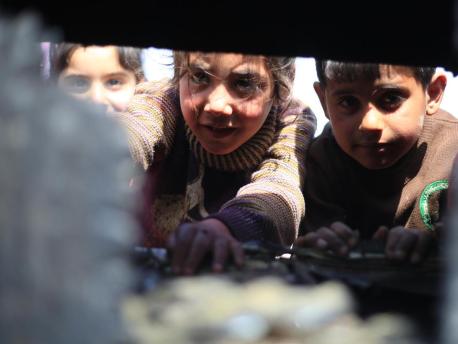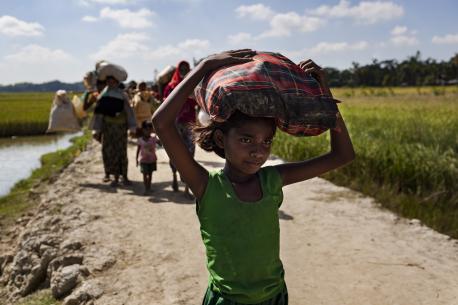
HOW TO HELP ROHINGYA REFUGEES
Rohingya refugee crisis: flight from Myanmar to Bangladesh
The Rohingya are a Muslim minority community that has lived for centuries in Myanmar, where they have long suffered persecution. In August 2017, having become the targets of a military-led campaign of brutal violence, over 700,000 Rohingya fled Myanmar’s Rakhine state into Bangladesh, joining hundreds of thousands more who had fled Myanmar during a previous exodus.
The refugees — who now number over 940,000 — settled in Cox’s Bazar, where hillsides were quickly cleared of trees and vegetation to accommodate the massive influx of traumatized families and children.
The deforestation made room for the hastily erected shelters where the Rohingya now live. But it also created conditions that are ripe for disaster during monsoon season. Torrential downpours and strong winds often cause flooding and landslides, damaging the infrastructure that UNICEF and partners have built to support these families who are already struggling to eke out an existence.
When UNICEF-supported learning centers are impacted by these conditions, children’s education is again put on hold. When water systems, latrines and other sanitation facilities are compromised, the risk of cholera and other waterborne disease increases.
Even in the off season, Cox's Bazar is a difficult place to be a child.
How UNICEF is helping Rohingya refugees
Since the beginning of this crisis, UNICEF has been working with the Bangladesh government and other partners to deliver relief to children and families living in the refugee camps and settlements and in neighboring host communities.
UNICEF's support includes:
Providing clean, safe drinking water
Providing maternal and newborn health care
Immunizing children to protect against vaccine-preventable diseases
Distributing Vitamin A supplements to boost child nutrition
Treating children suffering from severe malnutrition
Expanding access to education by establishing learning centers for school-age children
Giving cash grants to primary and secondary schools to help them keep up with growing needs
Providing counseling and emotional support services to children exposed to violence and other traumas
Strengthening protections and support services for adolescent girls and women at risk of gender-based violence
Hundreds of thousands of Rohingya refugees from Myanmar are still living in Bangladesh's Cox’s Bazar District — highly dependent on international aid, highly vulnerable to the impacts of COVID-19, their futures uncertain.
